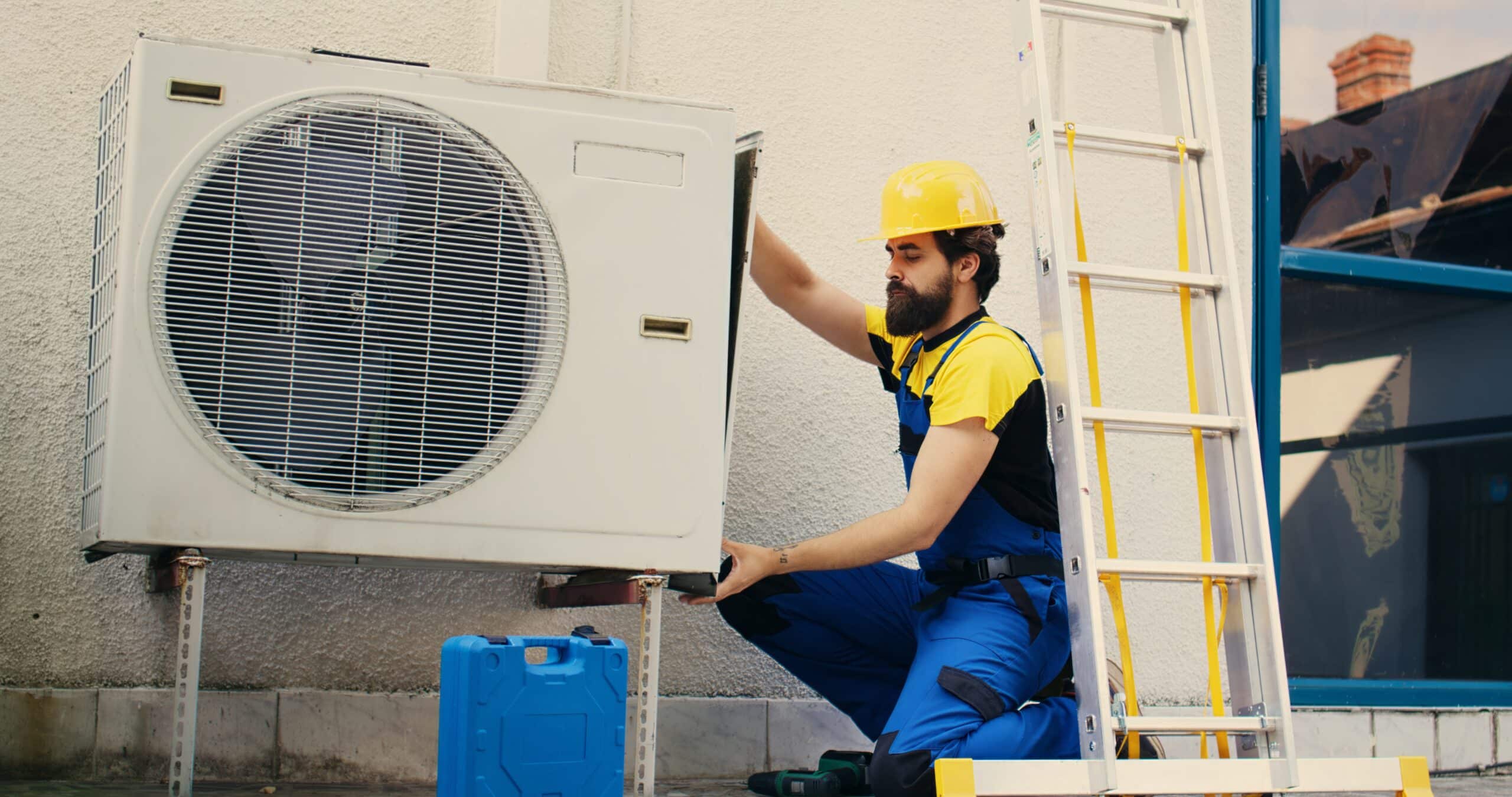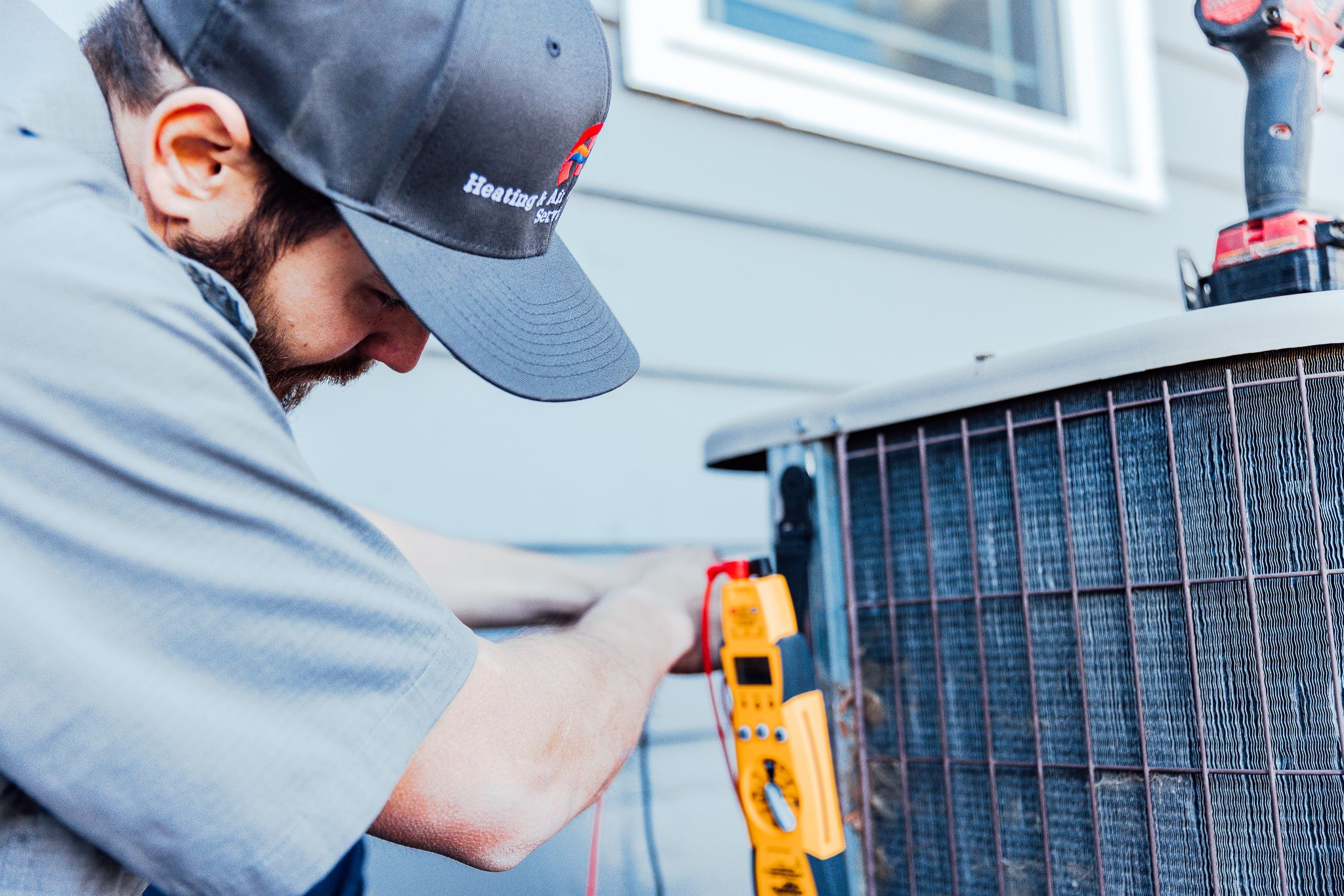How to Select the Right HVAC System for Your Office Or Home Needs
Selecting the ideal a/c system for an office or home is no little job. It's a process that requires mindful analysis of individual heating, cooling, and air flow demands, factor to consider of various system kinds, and assessment of power effectiveness. With the balance of first prices and long-lasting cost savings in mind, this complex decision demands complete research and expert advice. An incorrect option can result in discomfort, high energy expenses, and frequent maintenance issues. Therefore, recognizing the basics is important.
Understanding the Fundamentals of Heating And Cooling Equipments
A cooling and heating system, a phrase for Home heating, Air Flow, and Cooling, is an essential aspect in preserving a healthy and comfortable indoor environment. These systems operate in unison to control the interior temperature level, moisture levels, and air high quality, making it possible for owners to change conditions to their preference. The burner gives heat throughout winters, while the cooling cools down the inside during hot periods. Air flow, on the other hand, ensures a constant exchange of interior air with fresh outdoor air, getting rid of pollutants and maintaining great air quality. The complexity of an a/c system can vary, varying from straightforward single-room devices to intricate systems that serve huge business structures. Recognizing these essentials is the very first step in selecting the ideal heating and cooling system.
Examining Your Indoor Environment Requirements
Moving from a general understanding of A/c systems, the next action includes a careful examination of your details interior environment requirements. A larger space may demand a much more durable system, while a smaller sized location may not need as much power. Areas with severe temperatures may need systems with higher efficiency.
Checking Out Various Kinds Of A/c Solutions
Navigating through the intricacies of heating and cooling systems can be challenging. It is crucial to recognize the range of heating and cooling varieties available, and to make an educated choice based on cost and efficiency contrasts. This expedition will offer a clearer viewpoint on what each sort of HVAC system provides.
Understanding HVAC Selections
Ever questioned the wide variety of choices when it comes to cooling and heating systems? There are basically four primary kinds to think about. Central cooling and heating systems, the most typical, use ductwork to distribute cozy or trendy air throughout the home. Ductless, mini-split systems, on the various other hand, supply temperature level control for specific areas, ideal for homes with 'locations'. Heatpump utilize power to relocate warmth from an amazing area to a cozy area, making the amazing space cooler and the cozy area warmer. Packaged heating and air conditioning systems have the blower, heating, and cooling components all in one unit. Each kind has its distinct advantages, and comprehending these can assist one make a notified decision.

Expense and Efficiency Contrast
When exploring the vast array of Cooling and heating systems, it is important to take into consideration both cost and effectiveness. On the contrary, a lot more pricey systems often tend to be extra energy-efficient, saving money in the lengthy run.
For instance, central air conditioning systems, though pricey, are normally more effective than window units. Warmth pumps are expensive but use home heating and cooling down abilities, making them a cost-efficient, year-round service.
Additionally, it read this is necessary to take a look at the system's Seasonal Energy Efficiency Proportion (SEER) A greater SEER score shows far better energy efficiency, which translates to lower operating prices (DMAK's HVAC Edwardsville IL Experts). Spending carefully in a well-chosen A/c system equates to long-term financial savings.
Energy-Efficiency and Your Cooling And Heating System
The value of energy-efficiency in cooling and heating systems can not be overemphasized. The initial step towards an energy-efficient heating and cooling system is understanding the ratings and choosing the right models. This will not just profit the environment however additionally lead to substantial expense savings.
Recognizing Energy-Efficiency Ratings
Why is energy-efficiency crucial in your Heating and cooling system? Energy-efficiency ratings serve as a crucial guide to identify the prospective energy intake and cost savings of a Heating and cooling system. This ranking, typically revealed in SEER (Seasonal Power Efficiency Proportion) for air conditioners or AFUE (Annual Fuel Use Efficiency) for heaters, supplies a clear indication of the system's power efficiency.
Picking Energy-Efficient Models
These ratings additional hints show the performance of the system, with greater worths representing better effectiveness. The system size ought to be suitable for the space to avoid energy wastefulness. One more factor to consider is the kind of Heating and cooling system.
Price Benefits Evaluation

After considering the different factors that impact the power effectiveness of heating and cooling systems, it is useful to check out the expense advantages that come with these options. An effective cooling and heating system, although originally extra pricey, can save substantial quantities in power bills over its life-span. It minimizes the environmental impact by utilizing less power, providing an extra layer of advantages. Several governments and energy business likewise offer rebates or rewards for applying energy-efficient systems, better reducing the overall Check Out Your URL expense. Over time, a high-efficiency a/c system can pay for itself via power cost savings, while additionally boosting the building's worth. When choosing a Cooling and heating system, the expense benefits of energy effectiveness should be a key factor to consider.
When Choosing an A/c System, expense Considerations.

Installation and Maintenance Aspects of Heating And Cooling Solutions
Browsing the setup and maintenance of heating and cooling systems can be a complicated job. The process generally calls for a precise understanding of the system's specifications, which might consist of ductwork installation, electric wiring, and suitable placing. Specialists in the area are often worked with to handle this due to the technical skills required.
Post-installation, the maintenance of these systems is important to guarantee their longevity and performance. Normal maintenance, consisting of filter changes and system checks, is commonly suggested. This procedure entails assessment of all elements, cleaning, and tuning to make sure the system functions efficiently. Neglecting maintenance can bring about jeopardized performance, greater power consumption, and at some point, system failing. Understanding the subtleties of installment and preventive upkeep is crucial when choosing a HVAC system.
Conclusion
Finally, selecting the ideal a/c system calls for a comprehensive understanding of the essentials, assessment of indoor environment requirements, expedition of different system types, and consideration of energy effectiveness and price. It's essential to think about both setup and upkeep elements. By meticulously examining these aspects, one can effectively pick the a/c system that supplies optimum comfort and performance in both residential and commercial settings.
The intricacy of a Cooling and heating system can vary, ranging from basic single-room units to elaborate systems that offer huge commercial buildings. DMAK's HVAC Edwardsville IL Experts. Energy-efficiency ratings offer as a vital guide to identify the potential power usage and cost savings of a Heating and cooling system.After taking into account the numerous elements that impact the energy performance of HVAC systems, it is useful to examine the cost benefits that come with these selections. When choosing a Heating and cooling system, the price advantages of power efficiency must be a vital factor to consider
In verdict, selecting the appropriate A/c system requires a thorough understanding of the basics, assessment of interior climate requirements, expedition of different system types, and factor to consider of energy performance and expense.